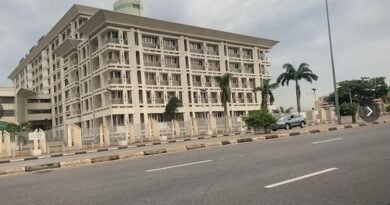Kenya Scraps Bread Tax Amid Protests and Police Response.
By Caroline Ameh
In response to widespread public outcry and protests in Nairobi, Kenya’s government has reversed several proposed taxes, including a controversial 16% levy on bread, following intense public backlash.
The protests, marked by police firing tear gas and using water cannons against demonstrators in the capital on Tuesday, underscored growing discontent with President William Ruto’s administration. Since assuming office in 2022, Ruto has implemented multiple unpopular tax measures aimed at reducing Kenya’s national debt, which stands at nearly $80 billion (£63 billion).

The decision to abandon some provisions of the finance bill, including taxes on cooking oil, mobile money services, and motor vehicles, was announced by Kuria Kimani, chairman of the parliamentary finance committee, in a press briefing attended by President Ruto and other coalition lawmakers. Kimani cited public feedback and concerns over the rising cost of living as reasons for the government’s U-turn.
Additionally, a proposed eco tax targeting environmentally impactful products such as packaging, plastics, and tyres faced criticism for potentially increasing prices of essential goods like nappies, sanitary towels, computers, and mobile phones. Kimani clarified that this levy would now only apply to imported goods.
President Ruto, present at the briefing, did not comment directly on the decision, which is seen as a setback for his administration’s fiscal policy. He has previously defended the need for increased taxation, arguing that Kenya is undertaxed compared to other nations.
The protests have not only voiced opposition to specific taxes but also included calls for President Ruto to resign, reflecting broader dissatisfaction with economic policies perceived to stifle growth and lead to job losses. The demonstrations also targeted recent hikes in taxes on salaries, fuel, and gross sales, as well as new levies like a housing tax and higher health insurance contributions.
As lawmakers prepare to discuss the amended finance bill on Wednesday, the arrests of protest organizers by police have drawn condemnation from rights groups. Critics argue that the heavy-handed police response undermines the right to peaceful assembly and expression in Kenya.
“I am very angry and I’m fighting for my future,” said Wangari, a protester, expressing frustration over the economic impact of the proposed taxes. “With such taxes, with such exploitation, I don’t see how we can build a life.”
The developments highlight the challenges facing Kenya’s government in balancing fiscal responsibility with public sentiment amid economic pressures and rising discontent.




